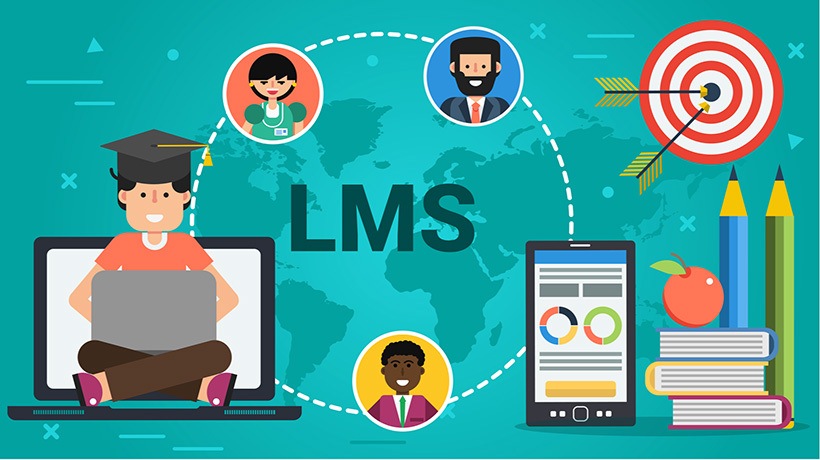A cloud-based Learning Management System (LMS) is a software application for delivering and managing online courses and training programs that are hosted on remote servers and accessed via the internet. Instead of installing the LMS on a local server, users can access the LMS from any device with an internet connection, including laptops, tablets, and smartphones.
With a cloud-based LMS, which works as a great student information system, users can create and manage courses, enroll and communicate with learners, track progress and completion` and generate reports on learner performance. The system also offers features such as gamification, multimedia support, and social learning tools that can enhance the learning experience.
Some advantages of a cloud-based LMS include scalability, easy accessibility, cost-effectiveness, and automatic updates. It also enables remote collaboration, enabling learners and instructors to communicate and collaborate from anywhere in the world. Additionally, cloud-based LMSs often provide data security and compliance with industry standards. Now have a look that how these systems help in administration in the educational institutes.
How Does a Cloud Based lms Help in Administration?
A cloud-based Learning Management System (LMS) can help in administration in several ways:
Centralized management: Cloud-based LMS provides centralized administration, which means that administrators can manage all aspects of training, from course creation to delivery and assessment, from a single platform. This makes it easy for administrators to manage courses, learners, and instructors without the need for multiple systems.

Streamlined processes: A cloud-based LMS can automate many administrative processes, such as course registration, enrollment, and payment processing. This can save time and reduce the risk of errors, ensuring that learners receive the right training at the right time.
Real-time monitoring: Cloud-based LMS provides real-time monitoring of learner progress, enabling administrators to track learner performance and identify areas that need improvement. This information can be used to make data-driven decisions, such as adjusting training content or providing additional support to learners.
Reporting and analytics: A cloud-based LMS provides detailed reporting and analytics, enabling administrators to measure the effectiveness of training programs and identify trends and patterns in learner behavior. This information can be used to improve training content, assess the impact of training on business outcomes, and identify areas for improvement.
Accessibility: Cloud-based LMS allows administrators to access training data and reports from anywhere, at any time, using any device with an internet connection. This ensures that administrators can stay on top of training activities and respond quickly to learner needs, even when they are on the move.
How Does a Cloud-Based lms Help the Educational Institutes?
A cloud-based Learning Management System (LMS), which can be a great student information management system as mentioned, can be a valuable tool for educational institutes. Here are some ways in which it can help:
Remote Learning: Cloud-based LMS enables educational institutes to deliver remote learning programs. This is especially important during times of crisis, such as the COVID-19 pandemic, when face-to-face learning may not be possible. With a cloud-based LMS, educational institutes can provide learners with access to digital course materials, online discussions, and assessments.
Cost-Effective: Cloud-based LMS is cost-effective because it eliminates the need for educational institutes to invest in expensive hardware and software infrastructure. They only need to pay for the subscription of the LMS, and the LMS provider takes care of hosting, maintenance, and upgrades.
Personalized Learning: A cloud-based LMS allows educational institutes to personalize the learning experience for individual learners. By tracking learner progress and performance, the system can suggest additional resources or activities to help learners who are struggling, or provide more challenging material to learners who are excelling.
Collaboration: Cloud-based LMS allows learners to collaborate with each other and with instructors, regardless of their location. This can promote more effective learning, as learners can work together to solve problems and share their knowledge and experiences.
Tracking and Reporting: Cloud-based LMS allows educational institutes to track and report on learner progress and performance. This enables instructors to identify areas where learners need more support or where the course content needs to be improved. It also provides educational institutes with data that they can use to demonstrate the effectiveness of their training programs to stakeholders.
















